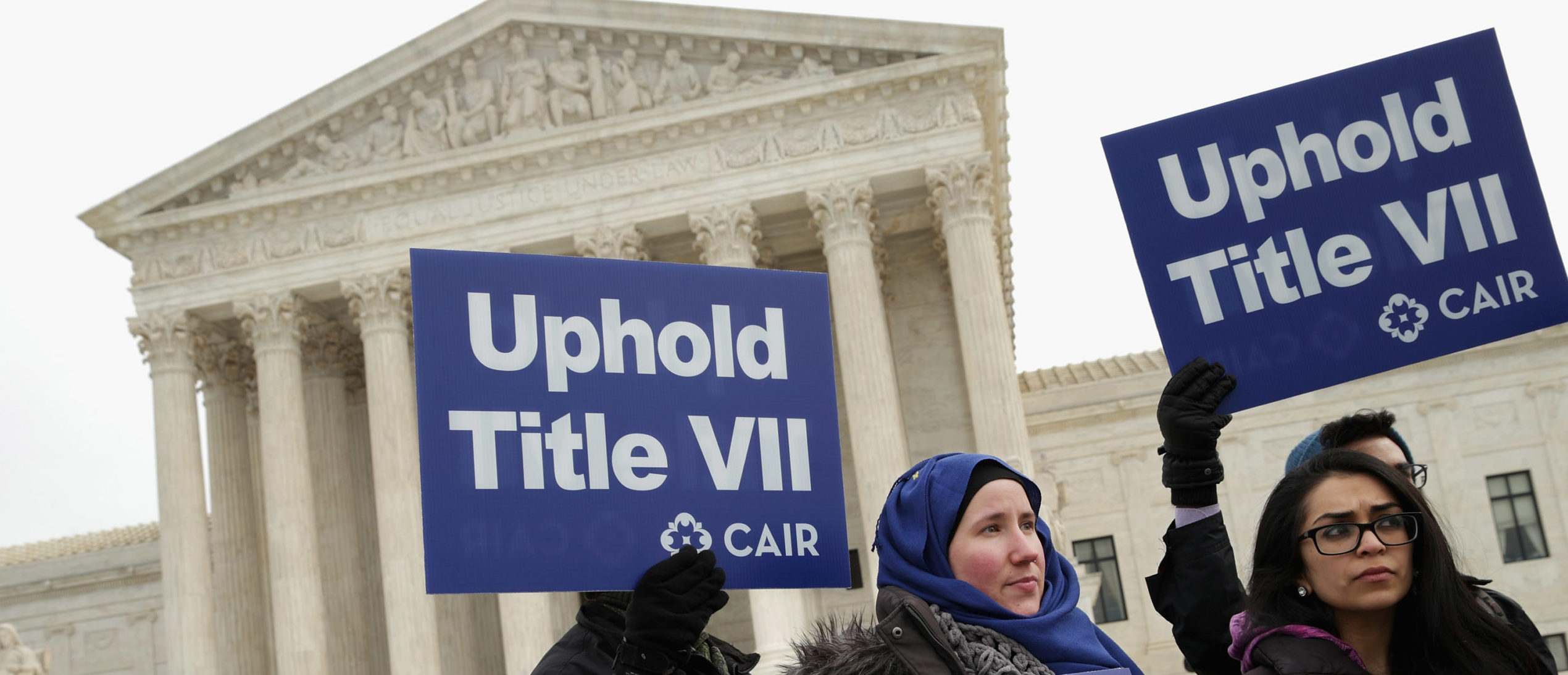A federal court of appeals ruled Tuesday that a religious management company was within its rights under the First Amendment to require employees adhere to its religious beliefs.
Braidwood Management Inc. and Bear Creek Bible Church filed a lawsuit against the Equal Employment Opportunity Commission (EEOC) in 2018, but judgment was withheld until the Supreme Court ruled in Bostock v. Clayton County in 2020 that LGBTQ employees could sue employers for discriminatory practices, according to the decision. Braidwood argued following the higher court’s decision that Title VII of the 1964 Civil Rights Act prevents them from adhering to their religious beliefs, and the 5th Circuit Court of Appeals agreed that “Title VII post-Bostock would substantially burden its ability to operate per its religious beliefs,” according to the decision. (RELATED: Catholic Parents Sue State Officials For Dismissing Supreme Court Decision Granting Religious Schools Tuition Funding)
“On the merits, and as we explain, we decide that [Religious Freedom Restoration Act] requires that Braidwood, on an individual level, be exempted from Title VII because compliance with Title VII post-Bostock would substantially burden its ability to operate per its religious beliefs about homosexual and transgender conduct,” the court wrote in its decision. “Moreover, the EEOC wholly fails to carry its burden to show that it has a compelling interest in refusing Braidwood an exemption, even post-Bostock.”

WASHINGTON, DC – FEBRUARY 25: Lauren Schreiber (L) and Umna Khan join other supporters from The Council on American-Islamic Relations during a news conference outside the U.S. Supreme Court after the court heard oral arguments in EEOC v. Abercrombie & Fitch February 25, 2015, in Washington, DC. (Photo by Chip Somodevilla/Getty Images)
In Bostock, the Supreme Court decided that the Civil Rights Act also protects gay and transgender citizens from discrimination in addition to race, color, religion, sex and national origin, according to the higher court’s opinion. Braidwood argued that the Supreme Court’s decision violates its right under the First Amendment to freely exercise its religion in the workplace, claiming that it would have to violate its beliefs about marriage and sexuality in order to comply with the EEOC regulations, according to the appeal’s court ruling.
In light of this, the court dismissed EEOC’s counterargument that in order to comply with Title VII, it would only need to “refrain from taking adverse employment actions,” but the judges pointed out that the logic would require the company to comply with regulations that “it sees as sinful,” according to the ruling. The judges did not, however, grant the case class-action status, meaning that the ruling will only apply to Braidwood since the court could not “determine whether the employers’ codes of conduct are similar enough in practice to Braidwood’s that their lawfulness can be resolved ‘in one stroke,'” according to the ruling.
The EEOC declined to comment on the ruling.
Bear Creek and Braidwood did not immediately respond to the Daily Caller News Foundation’s request for comment.
All content created by the Daily Caller News Foundation, an independent and nonpartisan newswire service, is available without charge to any legitimate news publisher that can provide a large audience. All republished articles must include our logo, our reporter’s byline and their DCNF affiliation. For any questions about our guidelines or partnering with us, please contact licensing@dailycallernewsfoundation.org.


